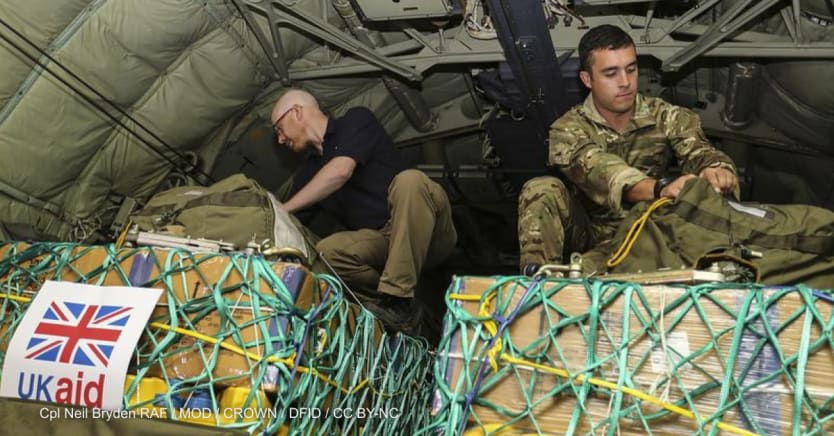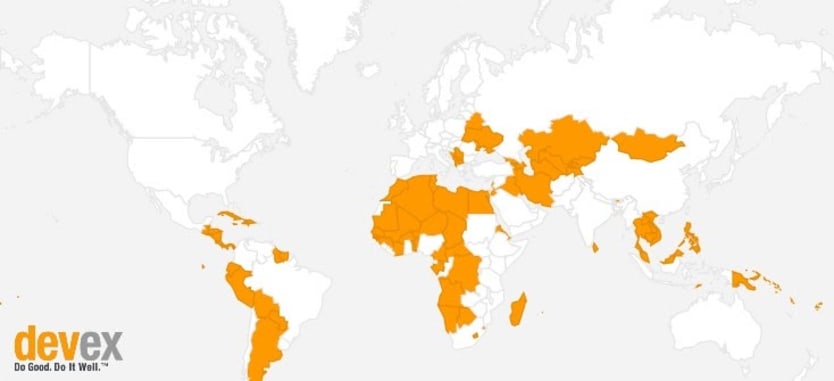
The British government has ended direct bilateral aid to more than 100 countries and territories, according to a Devex analysis of a letter written by Foreign Secretary Dominic Raab.
The entirety of North Africa — including Libya — Central Asia, and Central America will no longer receive bilateral aid from the U.K., the letter indicated.
Individual countries and territories that will apparently no longer receive development assistance directly from the U.K. include Iraq, Jordan, the Palestinian territories, and Lebanon — all of which are dealing with crippling humanitarian crises.
African countries gripped by conflict, such as Cameroon, Mali — where the U.K. has deployed a peacekeeping mission — and the Central African Republic will also not be receiving any direct bilateral aid this year, the letter suggested.
UK government avoids vote on aid cuts — for now
A legal amendment designed to force a vote on the U.K. aid cuts has been ruled out on technical grounds, but the House of Commons speaker has insisted the issue should be brought to Parliament.
Raab’s letter was written in response to a request from politicians on the International Development Committee, which asked for a country-by-country breakdown of how bilateral U.K. aid — money spent directly on projects rather than through international institutions — would be allocated for 2021-2022.
U.K. aid funding has been thrown into uncertainty since the government decided in November to miss the legally enshrined target of spending 0.7% of national income on aid, instead only spending 0.5%. The decision caused a funding gap of around £4 billion and has led to numerous program cancellations and cuts, which Devex has monitored. The letter was published Monday, just hours before rebel parliamentarians tried to force a vote on the issue in the House of Commons.

Raab’s letter to IDC did not include funding allocations but simply a list of 34 countries to which bilateral aid was allocated for the existing financial year.
According to data listed in table C7 in a government spreadsheet from 2019 — the latest year for which full information is available — the U.K. ran bilateral aid programs in 136 countries and territories, with 102 in total seeing bilateral aid canceled. Raab’s letter also listed “Southern Africa” among the countries that will still receive direct bilateral aid, and Devex’s analysis counted this as South Africa because other countries in the region, such as Malawi, Zambia, and Zimbabwe, were already on the list.
Tracking the UK’s controversial aid cuts
Keep up with the effects of the U.K. aid cuts via our regularly updated tracker.
While Raab’s letter said that “The FCDO [Foreign, Commonwealth & Development Office] will also spend through regional bilateral programmes to reach countries not included on this list, such as in the Sahel, Caribbean, and Western Balkans,” there were no further details offered on which programs would be funded and by how much, which countries would benefit, and how effective the programs would be compared with direct bilateral aid.
Ukraine will also no longer be receiving direct bilateral aid, while Zambia and Tanzania will, according to the letter. Last year, U.K. Prime Minister Boris Johnson complained that the country gives “as much aid to Zambia as we do to Ukraine, though the latter is vital for European security [and] ... ten times as much aid to Tanzania as we do to the six countries of the Western Balkans, who are acutely vulnerable to Russian meddling.”
The U.K. will still send direct bilateral aid to China, according to the letter, despite the government having previously promoted a heavy cut in development assistance to the country.
FCDO did not respond to a request for comment by the time of publication.
Update, June 7, 2021: This article has been updated to reflect that the British government has ended direct bilateral aid to more than 100 countries and territories combined.









